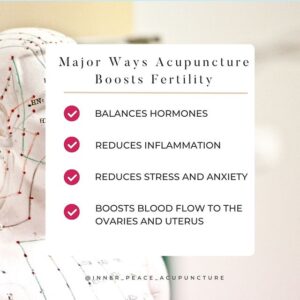It’s unfortunate, actually, that I get to know many of my patients after they have already experienced such a difficult TTC journey or are working within a limited time frame preparing for an ART procedure. Don’t get me wrong, we have a wildly successful protocol for these women… and there’s nothing I love more than working with them and being a part of their story.
But what can we do as women to prevent having these struggles in the first place? How can we teach the young girls in our lives how to nurture and protect their fertility health should they want to have children? How do young women avoid the dreaded “Unexplained Infertility” diagnosis?
Of course, there are some cases that cannot possibly be predicted or prevented. However, because of the way our lifestyle, culture, and economy have evolved, there are many modern circumstances that have hurt our overall health, and therefore our fertility, far more than they have helped.
Here are some things to be aware of (and to share with the females we mentor and raise) in an effort to control these risk factors:
1. Avoid Cigarettes
Smoking can lead to early menopause and infertility. In fact, smokers have a 66% higher risk of infertility.
2. Do not use illicit or mind-altering drugs
Marijuana can interfere with ovulation, sperm production and sexual performance. Cocaine and Opioids damage cells and alter blood flow to the uterus, potentially affecting implantation.
3. Do not abuse alcohol
Alcohol abuse causes inflammation and can adversely affect hormone production and metabolism, leading to issues with ovulation and sperm production.
4. Develop good exercise habits
A healthy amount of regular exercise manages weight and reduces stress. These means do not under-exercise or over-exercise.
5. Develop good sleep habits
Women with less and lower quality sleep have lower fertility rates.
6. Eat a healthy diet and maintain a healthy weight
Learn a balanced diet, and avoid an excess of inflammatory foods such as processed sugar, gluten, dairy, or specific foods to which you as an individual are sensitive. Being too thin or too heavy does not support your fertility.
7. Practice safe sex
Unprotected intercourse significantly increases the risk of developing a sexually transmitted infection, or STI, which can increase the risk of infertility.
8. Be mindful of environmental toxins
Extensive research by the National Institute of Health clearly states that metals and chemicals in air, water, food, and health-and-beauty aids are damaging fertility in many ways. These toxicants are causing men to experience relentlessly decreasing sperm count and function while women are suffering progressively worse anovulation, impaired implantation, and loss of fetal viability.
9. Eat organic or avoid pesticide-treated food
In epidemiological studies, exposure to pesticides has been associated with menstrual cycle disturbances, reduced fertility, prolonged time to pregnancy, and many other negative effects due to the disruption of the female hormonal function. The diverse toxicity of pesticides causes ovarian cycle disturbances, ultimately leading to fertility problems and other reproductive effects.
10. Avoid Birth Control Pills
Oral and implanted contraceptives can cause Amenorrhea. They can mask menstrual cycle irregularities of which a woman should be aware as early as possible, and they encourage a higher likelihood of STI’s that can lead to infertility.
11. Regularly visit your health care provider
Be an active participant in your reproductive and overall health as a female.
12. Develop healthy stress management practices.
So are we asking young women and women trying to conceive (TTC) to be boring saints? Absolutely not. The 80/20 rule is not a bad one to live by. Have you heard of “everything in moderation?” Also a good standard of living.
However, we didn’t know about the significant negative impact of more modern circumstances such as; the popularity of processed and inflammatory foods, the encouragement of birth control pills from Western medicine doctors, environmental toxins and pesticides, and society’s pressure to be thin, fit, and perfect on social media, blue light technology stealing hours from our family time and sleep, and so on. Imagine years upon years of these factors…
So this all makes sense for fertility but what does it have to do with Traditional Chinese medicine (TCM) and acupuncture? Everything!
Acupuncture is a natural, effective way to reduce stress, encourage blood flow, reduce inflammation, promote healthy digestion, encourage good quality sleep, manage pain, maintain a healthy weight, regulate your menstrual cycle, and so much more!
We provide a proprietary Practically Fertile Methodology to include your diet and lifestyle. TCM, being 5,000 years old, involves a diet of natural, whole, nutritious foods lacking inflammatory properties, as well as medicinal herbs from the earth that work with your body as opposed to disrupting its natural rhythm.
Our goal here at Inner Peace Acupuncture in Charlotte is not only to help those suffering with fertility struggles to get pregnant… but to help all women support their fertility health long before they are actively trying to conceive a child.
Please share these thoughts with the females in your life, and consider adopting them as habits for yourself and the future of your family.














